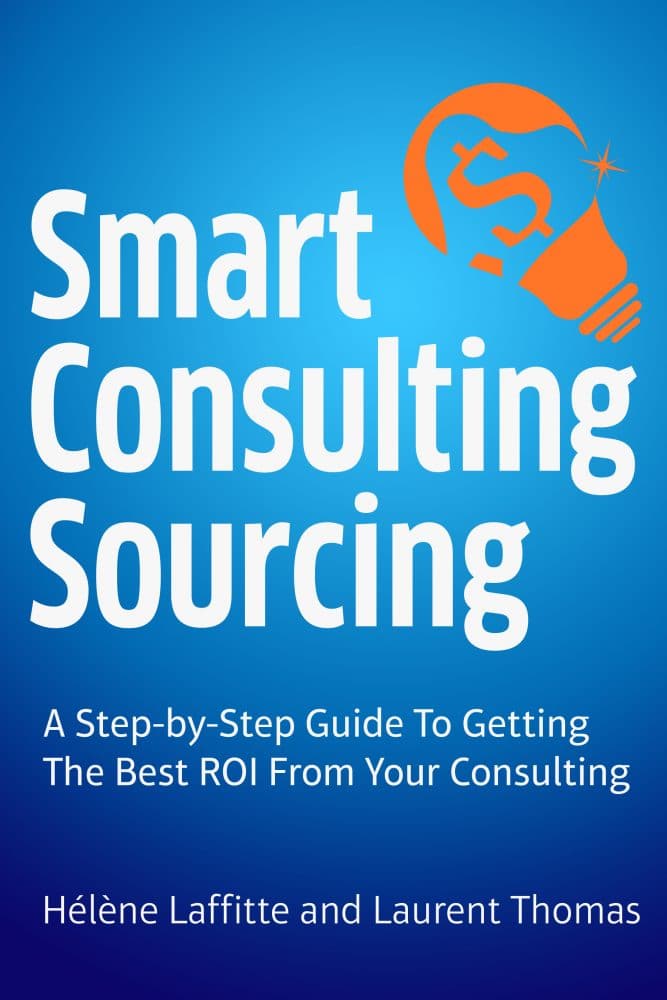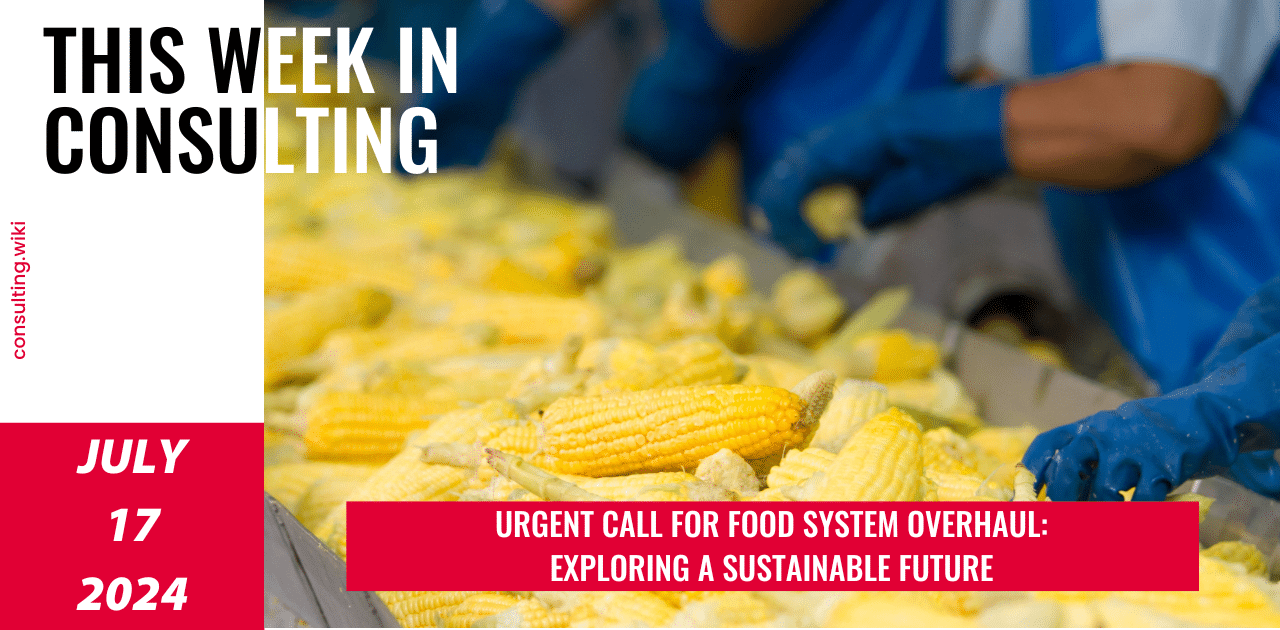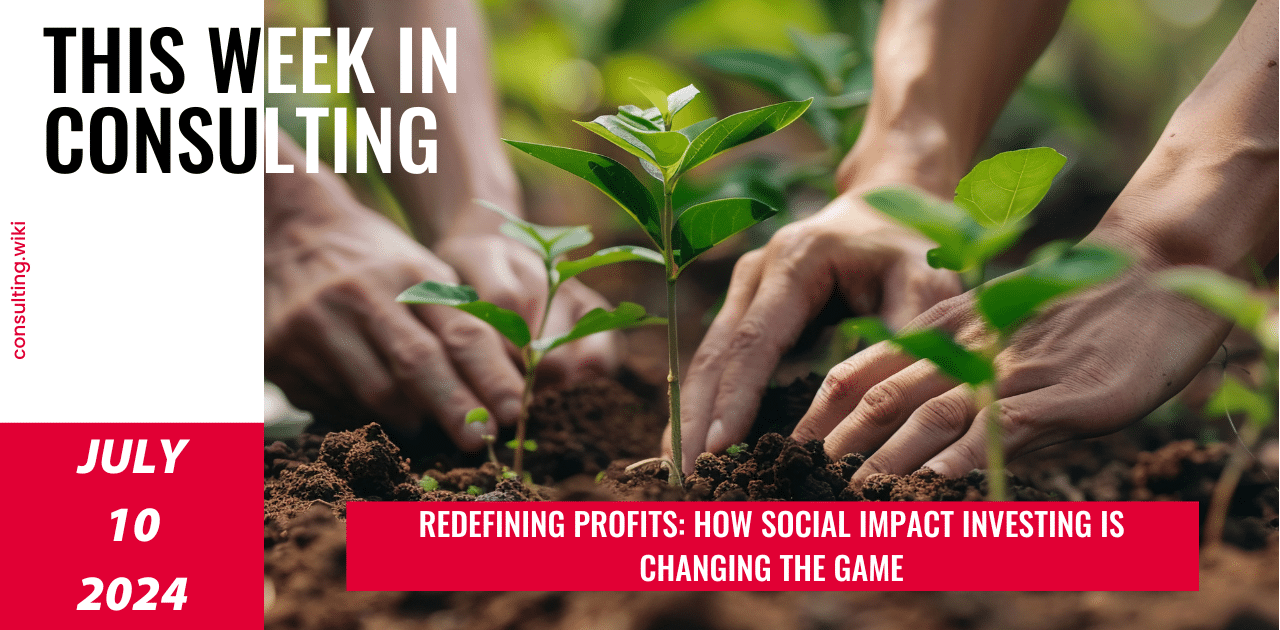
Top Secrets of Getting the Key Markers Right, And Why It Matters.
If there was a “secret sauce” to find the right provider for a Consulting project, it probably lies in the combination of 8 key markers. Before we reveal these key markers, let’s establish the right foundation first.
Top Secrets of Getting the Key Markers Right, And Why It Matters.
The “DNA profile” of your preferred Consulting provider –
The consulting landscape today is rich and diverse, and while this is beneficial to Clients, it also represents a challenge. The question to any business is that in order to create the best value versus cost, the Client should find the best provider that matches their needs and requirements.
“The secret sauce of the business that I can offer is my creativity, and in order to keep my creativity alive and fresh, I have to pretend that no one is watching the show, … I’m just telling a story.” – Shonda Rhimes
To maximize the chance of success for your project, you want to hire consultants who have the right knowledge and who understand your business. You should listen to your teams and be ready to dig in to solve your most challenging business problems. In an ideal world, you would like them to have the right expertise, geographical coverage, and the availability to meet the project needs. In other words, you should look for consulting providers with the right consulting “DNA profile.” Every project is different, and so is the RFP. However, there are some elements of a consultant’s profile that you will always need to screen. The best way is to review your RFP, where you should find most of the information, and discuss it with your colleagues to understand their expectations fully.
What are the key markers to look for?
READ ALSO
Building your Consulting Strategy is about choices, evaluating information, and creating a vision for your organization that is agile, inspiring, and constructive.
8 Key Markers in selecting your ideal Consulting provider –
1- Capabilities – Do they have the capability you need?
Understanding what capabilities will be used to deliver the project is extremely important. Besides, the way Consulting firms describe their offering is rarely in line with how their clients would describe them. They tend to describe what they do but not necessarily the problems they solve. They can also use technical jargon that their clients don’t always know.
For instance, a company will have its capabilities listed on their website: strategy, operations, and organization. For a seasoned consulting buyer, this description can be enough to understand what this consulting firm does. But for the average executive, it doesn’t mean much.
These three capabilities can be really broad. At first sight, we could say that this company is handling projects from high-level strategy down to operations excellence—quite a program.
Let’s take the same consulting firm. Now the management has decided to revise their website and detail further their capabilities.
-
Supply Chain Strategy
-
Supply Chain Organization
-
Distribution Strategy
-
Asset & Working capital optimization.
2- Industry experience – It really matters-
Defining the industry experience you are looking for is an easier task. However, be careful to pick up the details of the context and the expected results to finely define what breadth and depth of knowledge you need. For instance, if you look at the Oil & Gas industry, you can be interested in the industry broadly, or maybe your project is about Upstream Operations, or even Exploration/Production, and more precisely about Well Stimulation.
3- Footprint – Are they present where you need them?
The scope of your project can call for a global company or a company with offices in a given country. Consider the locations where the consulting firm will need to work, the languages they will need to speak, the cultures they need to understand. Think also about where and how the team should interact with the project leaders.
Let’s say you have a Lean project for a High Tech company based in Germany with factories in Korea, and in the U.S. You might want to find a company with offices and consultants in both countries. The travel expenses must be included too. When the consultant comes in from far away, the additional costs can go up to 25-30% of your initial project amount. Do you really need the consultants onsite? Can you leverage modern communication technologies?
4- Size of the Consulting firm – Is a brand or a boutique firm a better fit for you?
What are your policies regarding small firms or independent consultants? What is your timeline for the project? If you have a tight timeline and multiple locations, you might consider a larger company with a global footprint. If your timeline is looser, and you only need support in one single location, you can probably make it work with a smaller firm.
5- Budget – Are you clear on the budget and the value you expect?
Knowing your budget is crucial to source your consultants. Consulting fees can vary from one firm to the next by a factor up to five. It is not a surprise that large Consulting firms will charge more than smaller ones. The size of a consulting firm is usually a decent proxy to estimate the consulting fees. If you have a tight budget, you will look at small local boutiques. If your budget is more accommodating, you can test several sizes of consulting firms.
6- Credibility – How to decide quickly and objectively on that?
Credibility is usually established through 3 main channels: Brand, Thought Leadership, and Partner profile.
-
Brand – sometimes, you will need a brand Consultancy for your project. When your project has a board exposure, or when the value expected is largely political, you want to work with the large players. They will have the credibility at the highest level of the company and with your investors, and the shoulders large enough to roll with the punches if you need a scapegoat.
-
Thought Leadership – companies with relevant thought leadership can bring you insights at the right level of expertise and on niche fields too. Let’s say that you are looking for deep expertise in multimodal transportation for process industries, for instance. Your teams are reluctant to work with consultants because they “know nothing.” You now bring a consultant who wrote a book, or several white papers, about network distribution optimization and multimodal transportation. There is a good chance that your teams will welcome this consultant.
Partner Profile – another way to get the buy-in of your teams and your major stakeholders is to bring in consultants with the right profile. For instance, if you are working on building an intrapreneurial program to boost your innovation, you might like to look at innovation consulting firms with partners mixing entrepreneurial and corporate experience. When you want to optimize your tail spend without a lot of resources on your hands, working with consultants with a past in corporate procurement can be very efficient.
7- Delivery Model – What are the exact deliverables?
How do you want to collaborate with your consultants? Do you want them to help you diagnose the problem or design your strategy? Or do you want them to support the implementation of your decisions? Consulting firms rarely excel at both. Besides, implementation consultants are usually less expensive than strategy consultants.
Another dimension to take into account is the hard vs. soft approach. Let’s imagine that you want to reorganize your procurement team and redesign the processes. Ask yourself what your priority is. Is it to get the buy-in of your existing teams? Are you looking for a collaborative approach? In that case, you need to look for a consultant with a high-sensibility to change. But if your main priority is to get the work done, then you will need a consultant who is more focused on the hard aspects of the project.
Finally, how senior do you need your consultants to be? If you want to professionalize your teams in the process, then you will need consultants that transfer knowledge. Hence, you want to work with senior consultants that have an on-field experience. If you are mainly interested in the results of the project, then you could work with younger consultants supervised by a more senior colleague.
8- Culture – Do you see any prospective challenges working with diverse teams?
Companies are becoming more and more global. Their teams are more ethnically, culturally, and linguistically diverse than ever. Beyond language, many elements of business life are different from one country to the next: management culture, business etiquette, communication preferences, etc.
For example, when you have a highly-sensitive project in Asia, you might want to find consultants that understand the local culture and speak the language. Part of the consultants’ job is to establish trust with their clients’ teams. And it’s important to avoid any communication issues.
Defining the right key markers is the first step to sourcing the right consultants and get the impact you need from your consulting project.
Consulting sourcing tips
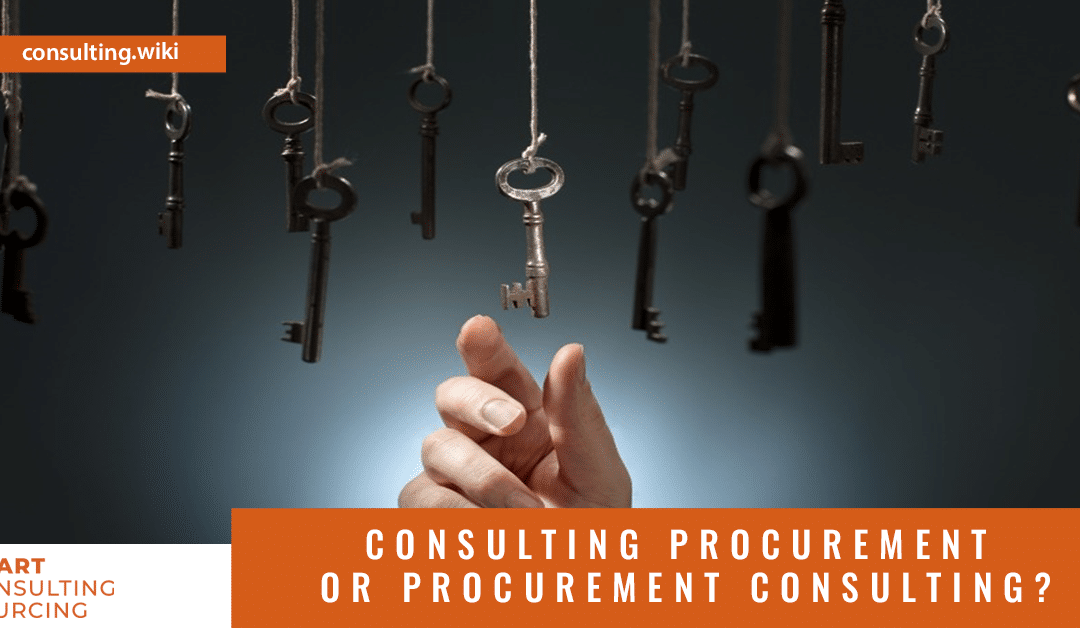
Consulting Procurement or Procurement Consulting?
Type Consulting Procurement in your browser and look at the results. What do you find? A list of consulting companies that offer their services to help improve your company’s purchasing and/or sourcing capabilities. But is it the same thing as Consulting Procurement?

How to negotiate framework agreements for consulting to your advantage?
How to negotiate framework agreements for consulting to your advantage?

Make-or-buy for consulting services 101
Make-or-buy for consulting services 101
Previous Weeks’ issues

Trends Shaping the Travel Industry in 2024 | This Week in Consulting
In this edition of “This Week in Consulting,” we explore how evolving consumer behaviours and digital innovations are shaping the future of the travel industry.

The Future of Food: Strategies for a Healthier Planet | This Week in Consulting
In this edition of “This Week in Consulting,” we aim to uncover answers and sustainable solutions to the growing demand for food from our expanding global population, exploring ways to bring about positive changes in the food value chain and its ecosystem.
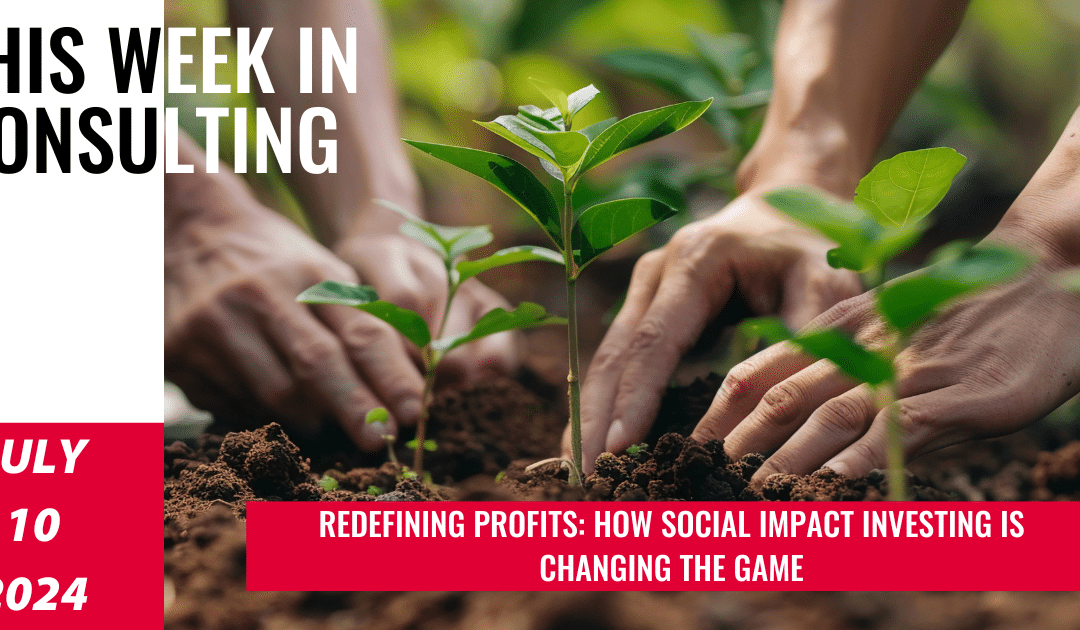
Investing in Change: The Power of Social Impact Initiatives | This Week in Consulting
In this edition of “This Week in Consulting,” we explore the multifaceted world of social impact investing –investor profiles, government roles in fostering the social finance market, and more.
Choose the best next step for you
Buy the Book
Talk to us
Hélène Laffitte is the CEO of Consulting Quest, a Global Performance-Driven Consulting Platform and author of “Smart Consulting Sourcing”, a step by step guide to getting the best ROI from your consulting. With a blend of experience in Procurement and Consulting, Hélène is passionate about helping Companies create more value through Consulting.



